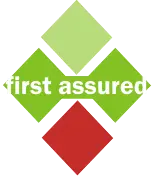
MENU
Plagiarism is "the un-credited use (both intentional and unintentional) of somebody else's words or ideas." According to UC Berkeley's Code of Student Conduct, Section V.102.01, plagiarism is academic misconduct, and is grounds for disciplinary sanctions, including a failing grade, suspension or dismissal from the University.
You probably know that:
But did you also know that:
Whenever you discuss someone else's ideas, their data, or the results of their research, you must cite that work! Citations are needed for paraphrases or quotations from another's work.
Information that's common knowledge does not need a citation. But how do you know if it's common knowledge? One simple rule applies: When in doubt, cite it!
Students are caught plagiarizing and cheating on this assignment and term papers in Bio 1B every semester. This usually results in course failure and a letter placed in the student’s file which will be shared with graduate program application materials.
CITING ARTICLES (PRINT AND ONLINE)
Why do you need to cite your sources?
Citations fulfill several functions:
Basic elements of journal article citations (in print OR online):
CITATION STYLES
Full citations, or references, at the end of a paper or article need to provide the reader with enough information to find the work that's referred to.
There are hundreds of different ways to format citations, and they vary among disciplines (humanities, sciences, social sciences, etc.). In the sciences, it's common for peer-reviewed journals to have their own citation styles. Usually, professors will specify what citation style they'd like students to follow for an assignment. There are a number of style manuals, some designed especially for bioscience literature, located in the Bioscience Library’s reference area and on the web.
Read more about styles:
CITING WEB PAGES
Basic elements of web citations:
Association/society sites:
[AAMC] Association of American Medical Colleges. 1995-2012. (5 June 2012; www.aamc.org)
Online document available on university program or department website:
Chou L, McClintock R, Moretti F, et al. 2003. Technology and Education: New Wine in New Bottles: Choosing Pasts and Imagining Educational Futures. (5 June 2012; www.ilt.columbia.edu/publications/papers/newwine1.html)
Page from a website, no author identified, no date:
The Talk. Origins Archive: Must-read FAQs. (5 June 2012; www.talkorigins.org/origins/faqs-mustread.html)
Creating Bibliographies with RefWorks
What's RefWorks?

